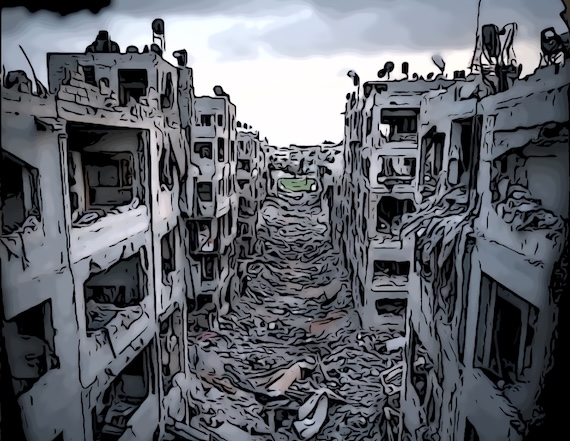( Middle East Monitor ) – Emboldened by the US and the international community’s acceptance of its genocide, Israel is not taking long to emerge from the shadows of its own rhetoric. After US President Donald Trump said that there is no right of return for Palestinians under the proposed take-over of Gaza for real estate development, Likud Communications Minister Shlomo Karhi has called for the forced transfer of Palestinians from Gaza.
On Monday, Israeli Finance Minister Bezalel Smotrich stated he would seek a vote over implementing Trump’s plan, warning that if Hamas failed to return the remaining captives, Israel would “open the gates of hell” and “immediately begin the migration of Gaza’s residents to other countries.” For Israel, genocide isn’t hell enough.
What Israeli ministers are saying is that since colonialism is above international law, Israel can impose its war crimes on the Palestinian people and strike at the sovereignty of other countries. As it has for decades, it must be added.

“Humanitarianism,” Digital, Midjourney / Clip2Comic, 2025
Since prior to the establishment of Israel, the Zionist movement has not ceased grappling with the fact that the indigenous population is a reality and the barren land is a myth. In 1938, David Ben Gurion stated that he supported the forced transfer of Palestinians and saw “nothing immoral” in it. The Nakba was one example of forced transfer within the context of widespread massacres, terrorism and destruction. Israel’s genocide in Gaza is another example of forced transfer. What Israel and the US are now aiming at is the forced expulsion from Gaza in a bid to make the land void of Palestinians. But with each effort, Israel is also asserting and reinforcing the Palestinian presence in Palestine. There is no way of avoiding the fact that Israel is built on forced displacement, and on the international community’s acceptance of it.
However, the visibility that comes with attempts to annihilate the Palestinian population also makes the colonised vulnerable. The open calls for forced transfer are not being called out as incitement to war crimes because the international community prefers to deal with the humanitarian issue of refugees. And when speaking of refugees without context, or within a diluted context, war crimes are dismissed in diplomacy. The forcibly displaced become a mere mass of humans lacking basic needs, but what they have truly lacked for decades is the right to their own land.
Israel’s genocide in Gaza reinforces the disseminated concept of a refugee as helpless and dependent. But forced dependence does not indicate helplessness. On the contrary, it exposes what the international community has forced on Palestinians, in order to protect Israel’s colonial presence and establishment. Forced dependence, like forced expulsion, forces us to look at the perpetrators – Israel, the US and the international community – and their actions.
The international community spent decades preparing for a moment when forced displacement can be euphemised through real estate prime property investment. And while most Western leaders would like to be seen once again as presenting alternatives to Trump by rejecting forced displacement, which Western leader will truly take a stance against foreign investment and for legitimate anti-colonial resistance? Refugees, after all, bolster the humanitarian paradigm.
The views expressed in this article belong to the author and do not necessarily reflect the editorial policy of Middle East Monitor or Informed Comment.
 Unless otherwise stated in the article above, this work by Middle East Monitor is licensed under a Creative Commons Attribution-NonCommercial-ShareAlike 4.0 International License.
Unless otherwise stated in the article above, this work by Middle East Monitor is licensed under a Creative Commons Attribution-NonCommercial-ShareAlike 4.0 International License.
 © 2026 All Rights Reserved
© 2026 All Rights Reserved